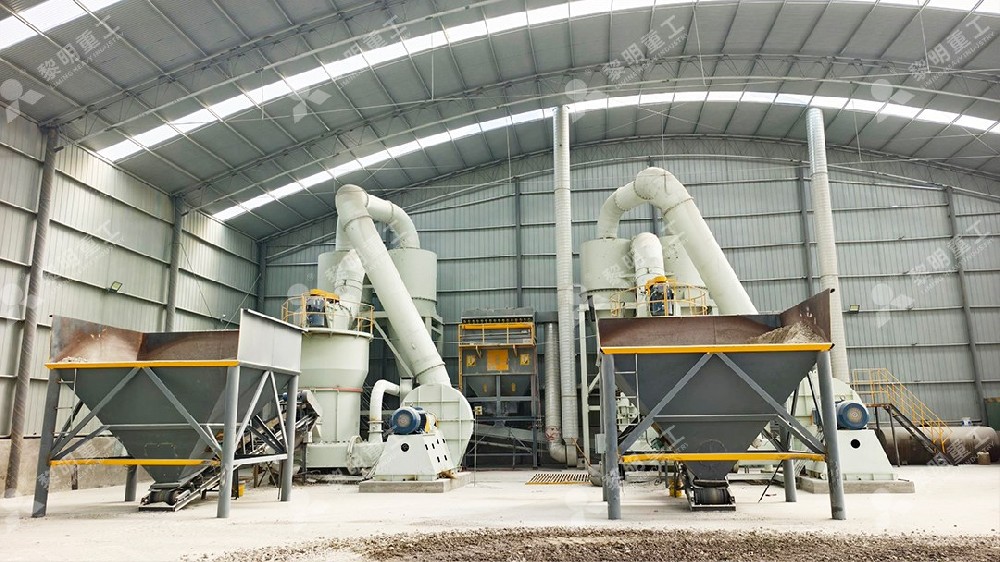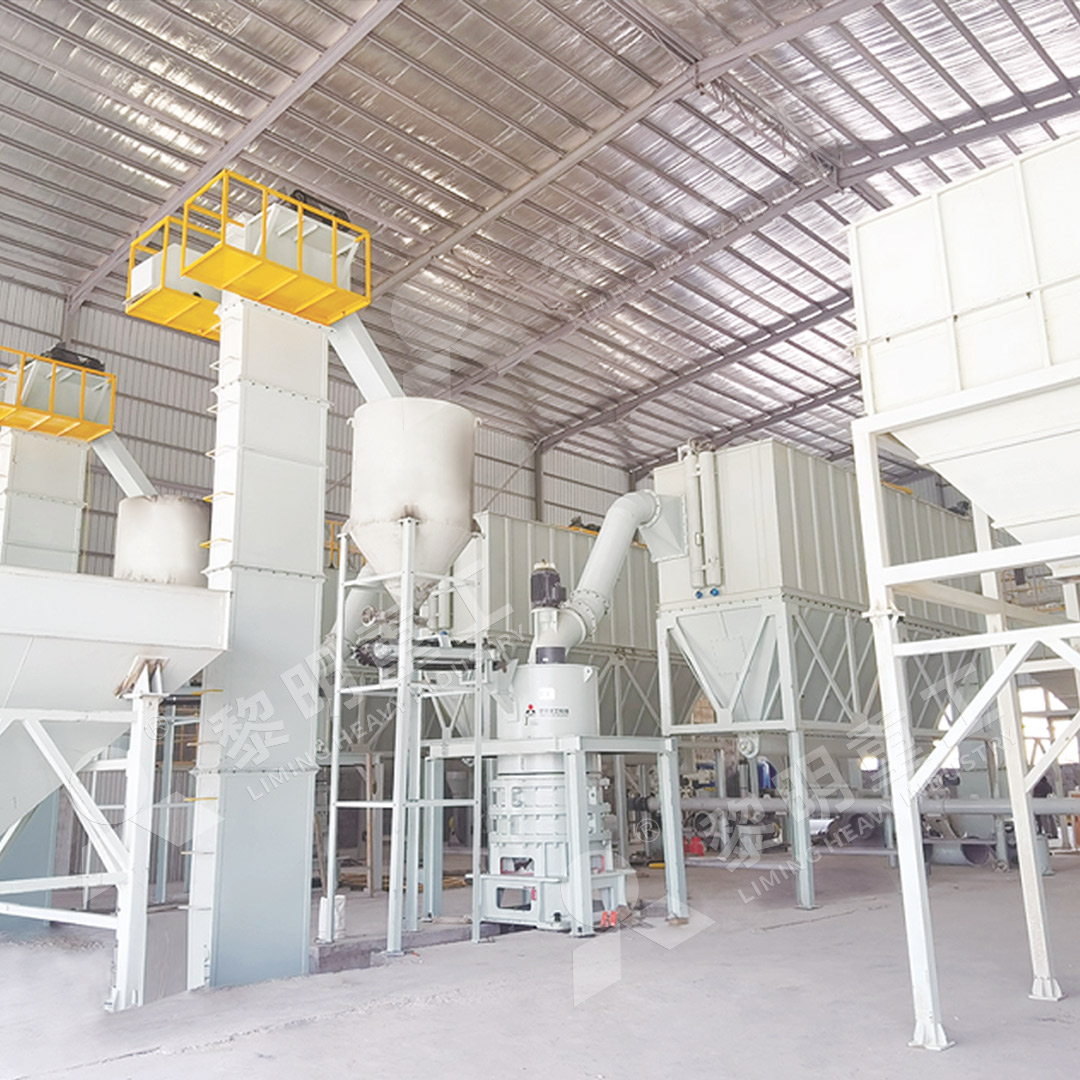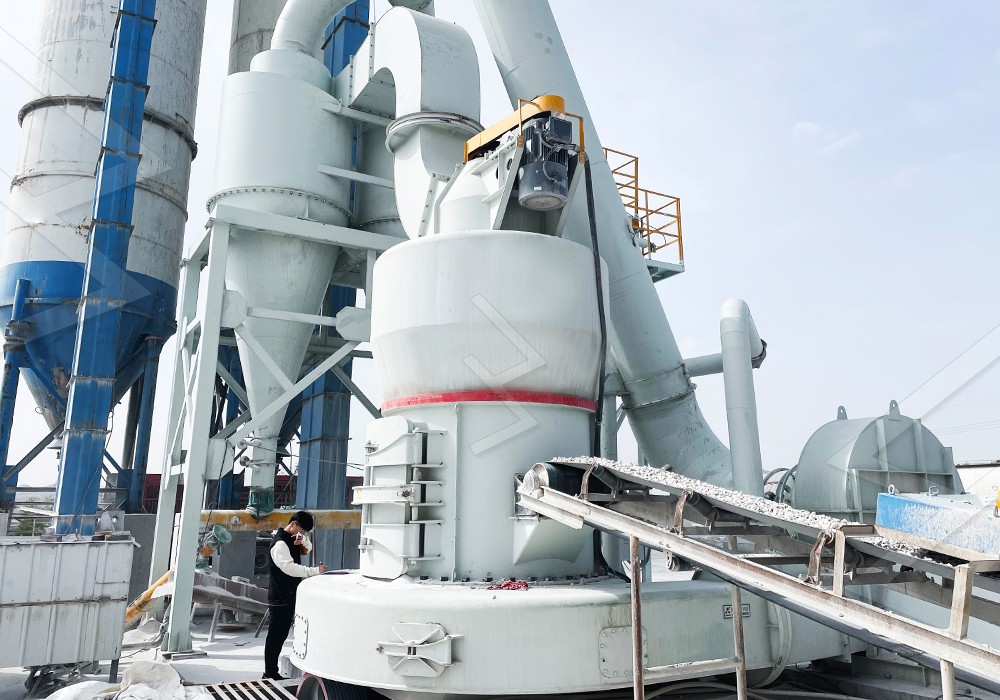Industry News
Talc Grinding Mill for Industrial Paint and Paper Coating in Germany – Fast Delivery Worldwide
2025-11-05 08:38:40
We are Liming Heavy Industry, a manufacturer of various types of industrial crushers, such as Raymond Mill, Trapezoidal Mill, Vertical Mill, Ultrafine Mill, Ball Mill, etc.
Our mills can process the following minerals:
limestone, quicklime, kaolin, talc, barite, bentonite, calcium carbonate, dolomite, coal, gypsum, clay, carbon black, slag, cement raw materials, cement clinker, etc.
If you need a mill to process stone or minerals into powder, please feel free to contact me (WhatsApp: +86 153 3380 7511). Thank you.
Talc is one of the most versatile industrial minerals, widely used in paint, coating, paper, plastics, and cosmetics due to its softness, lamellar structure, and excellent dispersibility. In Germany, where the paint and paper industries set high standards for product consistency and performance, the demand for finely ground, high-purity talc continues to grow. Producing talc powder with controlled fineness and brightness requires advanced grinding equipment that ensures precision, stability, and energy efficiency.

For paint manufacturers, talc serves as a functional filler that improves suspension stability, enhances smoothness, and increases durability of coatings. In paper production, talc contributes to surface gloss, printability, and opacity, helping paper mills meet demanding quality requirements. However, the performance of talc in these applications depends heavily on its particle size and uniformity. Achieving a fine, consistent powder—typically in the 200 to 1250 mesh range—requires high-performance grinding mills with accurate classification systems and low contamination rates.
Traditional mechanical mills often struggle to maintain particle size control and uniform whiteness when processing soft minerals like talc. In contrast, modern grinding technologies such as vertical roller mills and Raymond-type systems, developed by Liming Heavy Industry, provide superior performance for industrial talc processing. These mills combine grinding, classifying, and collecting in one compact structure, minimizing energy consumption and improving product consistency. The closed-circuit design ensures dust-free operation and protects the purity of talc powder, which is essential for paint and paper applications.

Germany's manufacturing standards emphasize precision, efficiency, and environmental responsibility. Liming Heavy Industry's talc grinding mills are designed to meet these expectations, incorporating intelligent control systems, automatic material feeding, and advanced dust collection. Each mill can be configured according to production requirements—whether for fine powder used in high-end coatings or ultra-fine grades required by premium paper coating lines.
The durability and energy efficiency of Liming mills also make them ideal for long-term industrial operation. Built with wear-resistant materials and optimized air flow design, these machines operate stably over extended periods with minimal maintenance. Compared with traditional ball mills, Liming's vertical and Raymond mills can reduce energy consumption by 30–50%, significantly lowering production costs while maintaining superior product quality.
For global manufacturers, logistics and delivery time are critical factors. Liming Heavy Industry provides factory-direct sales and fast worldwide shipping, ensuring equipment reaches customers quickly and safely. Each grinding system is pre-tested before shipment, and installation teams can provide on-site or remote setup assistance to minimize downtime. This streamlined process allows paint and paper producers in Germany—and across Europe—to upgrade their production lines efficiently and without long delays.

Liming Heavy Industry's engineering team customizes complete talc grinding solutions, from raw material handling to final powder collection. The production line can include crushing, drying, grinding, and classifying systems, all optimized to ensure consistent output and energy savings. For clients requiring large-scale industrial capacity, the company offers integrated production systems capable of processing 10–40 tons of talc per hour, suitable for continuous operation in modern manufacturing plants.
With decades of experience in the mineral grinding industry, Liming Heavy Industry has established itself as a global leader in powder processing technology. Its equipment is trusted by industrial manufacturers in Germany, France, Italy, and other European countries for delivering stable performance, long service life, and high cost-efficiency. Whether for producing filler-grade talc for coatings or micro-powder for paper surface treatment, Liming provides reliable technology, strong technical support, and efficient international logistics—all from a single, professional source.
FAQ
1. What fineness can Liming Heavy Industry's talc grinding mill achieve?
The mill can produce powder from 200 mesh up to 1250 mesh, suitable for both paint and paper coating applications.
2. How much energy can be saved compared to traditional grinding systems?
Energy savings of 30–50% are common when using Liming's vertical roller or Raymond grinding mills.
3. Does the equipment maintain talc whiteness and purity?
Yes, the closed-circuit design prevents contamination and preserves the natural brightness of the talc.
_1761355701094.jpg)
4. What is the typical capacity range for talc grinding mills?
Production capacities range from 3 to 40 tons per hour, depending on the model and target fineness.
5. How fast can equipment be delivered to Germany?
Factory-direct delivery typically takes 20–35 days, including pre-shipment testing and logistics arrangements.
6. Can Liming Heavy Industry provide installation and training services?
Yes, technical engineers are available for on-site installation, commissioning, and operator training worldwide.
7. Are Liming mills suitable for other non-metallic minerals?
Absolutely. The same system can grind limestone, dolomite, calcium carbonate, barite, and similar materials.
8. Do Liming grinding systems meet EU environmental standards?
All mills are equipped with advanced dust collectors and noise control systems that fully comply with EU environmental regulations.







